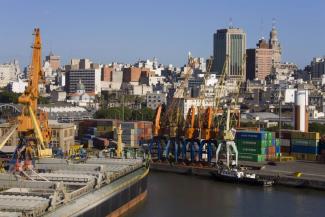Global governance
Reducing waiting times

According to Karl Brauner, a high ranking WTO officer, it costs the equivalent of $ 40 to get a container of exports across the German border. The comparative sum in Sudan is $ 430. The huge difference shows that trade facilitation is a worthy goal. The WTO agreement on this matter was agreed at the ministerial conference in Bali in 2013 and came into force last year. Two thirds of signatory countries had ratified it 12 months ago.
According to the agreement, all WTO members must make their customs rules transparent and spell them out on online platforms. Companies must be able to get all procedures done in one place, relying on a “single window” system. The information government agencies provide must be legally binding, and their fees must be proportionate to the work they actually do. If a country intends to change its rules, moreover, it must consult the business community its new rules will affect. In Brauner’s eyes, this is a “small, but important step” towards more democratic participation in public affairs.
In various countries, implementation of the agreement has moved ahead, Brauner reports. In Uganda, the time needed to get a shipment out of the country has been reduced by 90 %, he says, and imports take 50 % less time than before. Accordingly, Ugandan companies’ chances of being included in international value chains has grown. Moreover, simpler procedures mean more transparency and less scope for corruption, according to Brauner.
Holger Görk of the Kiel Institut für Weltwirtschaft supports Brauner’s favourable assessment. In his view, trade facilitation may even be more important than reducing tariffs. He says that, on Uruguay’s borders, the waiting time for identical products may vary from one to 31 days, for example, so it is very hard for companies to plan. Indeed, fresh goods may actually perish before they are brought to the market. An average of 15 government agencies per country are involved in trade matters, Görk says, and in Nigeria, 50 agencies have a say. Unsurprisingly, importers and exporters appreciate being able to get all bureaucratic procedures done in a single place. Görk says, the evidence shows that trade facilitation works as cross-border flows of goods are increasing in South America, for example.

















